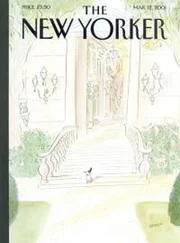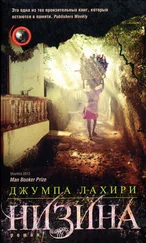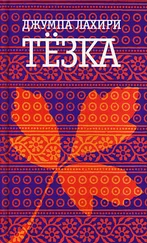At His Place
Ever since that trip together with his children I’ve been feeling off-kilter. I’ve wondered what it would be like to take things further, and I think, too often, about the way he laughs, the way his voice reverts to the high pitch of a little boy’s, and the hairs on his wrists and scattered on the backs of his hands, and the humorous messages he still sends me now and then. I wait but he doesn’t get in touch, it’s been a while since I’ve seen him in the neighborhood, but then one day the phone rings, and his name on the screen already smacks of impudence. My friend is usually at work at this hour, their children are at school. What will he suggest this time? A bite to eat at the bar on the corner?
Instead when I hear his voice I realize something’s happened. He explains it all quickly: my friend’s father has had a stroke and the outlook is grim. They got the call early in the morning and they left the dog and the house without tending to either. The barista on the corner has the keys.
I head over right away, the dog needs to go out. It’s the first time I’ve been at their place alone. Until now all I’ve known is the table set for a dinner, the bathroom used by guests, the kitchen crowded with pots and pans. This morning it’s all under control in spite of the call before dawn, the hasty departure. The plates in the dishwasher are clean, and the coffeepot on the stove is the only thing to wash. Someone spilled a bit of sugar on the countertop.
I look into the bedrooms. The bright one, uncluttered, with white linen curtains, that he shares with my friend, and the one right next to it, less spacious, crowded with toys and a bunk bed. But even there, it’s all relatively tidy. The hallway is lined with photos of the two of them and of the children, photos of the four of them, moments of parenting they treasure, with their children at the seaside, or abroad, or in their laps. I pull down a few window shades and turn off the lever for the gas. I spread a blanket over the bed. I tie the garbage bag. This is the private morphology of a family, of two people who fall in love and have children: an enterprise as mundane as it is utterly specific. And all at once I see how they form an ingenious organism, an impenetrable collective.
I find the leash that hangs by the door and take the dog out. I walk him to the villa behind my house, carrying a few plastic bags in my pocket. We walk past the dirty fountains, beneath the sclerotic palms, past the pockmarked statues flecked with lichen and moss.
He’s a good dog, it doesn’t take long for him to trust me. He doesn’t bark, he leads me along the grounds of the villa, and I like the tinkling of the tags around his collar. He stops to drink water from a fountain, in front of a she-lion who crushes a skull with her paw, and another, recumbent, eating an apple.
Three times a day, for the next three days, until they’ve buried my friend’s father, until they come back, the dog and I make the same rounds. I grow fond of the animal, of his ears, always alert, and of his careful gait, his determined muzzle. Our walks together thrust me forward, and though he pulls me, I’m the one holding the leash. Every step puts distance between me and my infatuation until it’s no longer dangerous, until our romance, which never took hold to begin with, loses its hold over me.
At the Coffee Bar
“What’s new?” my barista asks one day.
“I’m thinking of leaving for a while.”
“What do you mean?”
“I’ve received a fellowship to go to a place I’ve never been before.”
“What would you do there?”
“I’d work on my own in the mornings. Then twice a day I’d sit at a long table to eat lunch and dinner with other scholars. I’d get to know them, have discussions, that sort of thing.”
“Sounds nice. And how long would this last?”
“A year.”
“You’re torn about it?”
“I’ve never left this city.”
“This city is a big fat drag.”
I finish my coffee and leaf distractedly through the newspaper someone else has left behind, and at one point, toward the bottom of the page, I recognize a face: the curly mass of hair, the large limpid eyes, the fine features. It’s the philosopher who was next door to me in that dreadful hotel. He’s probably accepted lots of invitations like the one I’m considering. Maybe it’s a sign.
I’m pleased to come across him again, to recall our riding up and down the elevator together, our unspoken accord. I still mean to read one of his books.
I remember how he used to speak excitedly in a foreign language, one I never managed to identify. In the picture he’s got that same smile, polite but ironic, ever so slightly malicious, that had somehow withstood the tedium of the conference. I haven’t forgotten his generous gaze, at once absent and piercing.
Below the picture there’s a block of text, just one column. I assume it’s an article about him, maybe a review of his latest book. After a long illness, it says. I’d had no idea.
Upon Waking
Today when I wake up I stay put. I don’t go to the bathroom to weigh myself or to the kitchen to drink a glass of tepid water before preparing the coffeepot. The city doesn’t beckon or lend me a shoulder today. Maybe it knows I’m about to leave. The sun’s dull disk defeats me; the dense sky is the same one that will carry me away. That vast and vaporous territory, lacking precise pathways, is all that binds us together now. But it never preserves our tracks. The sky, unlike the sea, never holds on to the people that pass through it. The sky contains nothing of our spirit, it doesn’t care. Always shifting, altering its aspect from one moment to the next, it can’t be defined.
This morning I’m scared. I’m afraid to leave this house, this neighborhood, this urban cocoon. But I’ve already got one foot out the door. The suitcases, purchased at my former stationery store, are already packed. I just need to lock them now. I’ve given the key to my subletter and I’ve told her how often she needs to water the plants, and how the handle of the door to the balcony sometimes sticks. I’ve emptied out one closet and locked another, inside of which I’ve amassed everything I consider important. It’s not much in the end: notebooks, letters, some photos and papers, my diligent agendas. As for the rest, I don’t really care, though it does occur to me that for the first time someone else will be using my cups, dishes, forks, and napkins on a daily basis.
Last night at dinner, at a friend’s house, everyone wished me well, telling me to have a wonderful time. They hugged me and said, Good luck!
He wasn’t there, he had other plans. I had a nice time anyway, we lingered at the table, still talking after midnight.
I tell myself: A new sky awaits me, even though it’s the same as this one. In some ways it will be quite grand. For an entire year, for example, I won’t have to shop for food, or cook, or do the dishes. I’ll never have to eat dinner by myself.
I might have said no, I might have just stayed put. But something’s telling me to push past the barrier of my life, just like the dog that pulled me along the paths of the villa. And so I heed my call, having come to know the guts and soul of this place a little too well. It’s just that today, feeling slothful, I’m prey to those embedded fears that don’t dissipate.
At My Mother’s
Twice a month I take the train to see her, after lunch. Each time I bring a small box of cat’s tongue cookies from the bakery around the corner, even though they always threaten to break apart. Today, the first day of a new year, I bring her another dozen, wrapped up on a gilt-colored cardboard tray.
The day is cloudy. Last night, after the fireworks, it rained. Now I see sheep through the train window, they’re stock-still against the rolling hills. At the station I take a bus that climbs the road leading to her town. By now I’m on friendly terms with the driver. He’s a bit cheeky, some might even call him a pain in the ass, but he doesn’t get on my nerves. To be honest I sort of welcome our typical, extravagant exchange.
Читать дальше
![Джумпа Лахири Whereabouts [calibre] обложка книги](/books/384312/dzhumpa-lahiri-whereabouts-calibre-cover.webp)




![Хелен Виннер - 33 несчастья Алисы [calibre]](/books/384302/helen-vinner-33-neschastya-alisy-calibre-thumb.webp)
![Даниэла Стил - Finding Ashley [calibre]](/books/384308/daniela-stil-finding-ashley-calibre-thumb.webp)
![Аманда Горман - The Hill We Climb [calibre]](/books/384311/amanda-gorman-the-hill-we-climb-calibre-thumb.webp)
![Дэвид Балдаччи - A Gambling Man [calibre]](/books/384314/devid-baldachchi-a-gambling-man-calibre-thumb.webp)
![Джон Ирвинг - Viename asmenyje [calibre]](/books/384315/dzhon-irving-viename-asmenyje-calibre-thumb.webp)
![Джон Ирвинг - Paskutinė naktis Tvisted Riveryje [calibre]](/books/384317/dzhon-irving-paskutine-naktis-tvisted-riveryje-cal-thumb.webp)
![Джон Ирвинг - Pasaulis pagal Garpą [calibre]](/books/384318/dzhon-irving-pasaulis-pagal-garpĄ-calibre-thumb.webp)
![Джон Ирвинг - Našlė vieneriems metams [calibre]](/books/384320/dzhon-irving-naŠle-vieneriems-metams-calibre-thumb.webp)